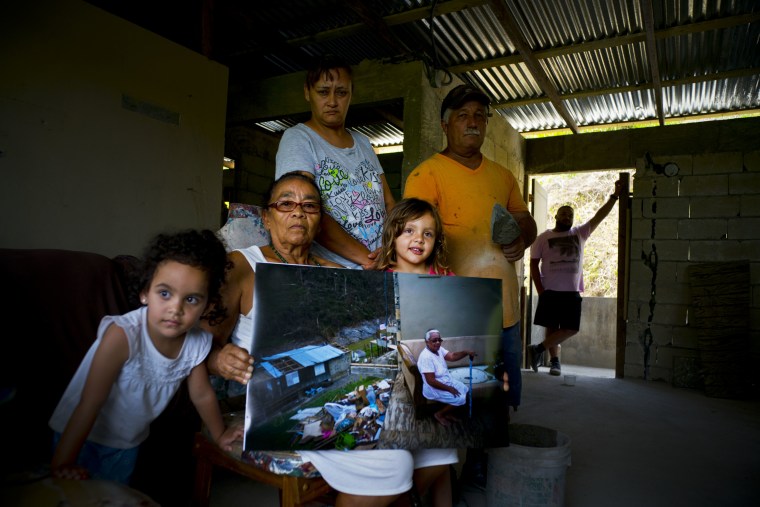Nearly a million and half people in Puerto Rico face deep cuts in food assistance, or losing it completely, if the federal government doesn't provide funding for the Nutrition Assistance Program, which is expected to run out of money on the island next month.
According to an analysis from the Center on Budget and Policy Priorities, a nonpartisan research and policy institute, 1.3 million people would experience average benefit cuts of more than a third if Congress does not approve a block grant for the Nutrition Assistance Program, or NAP, which is the U.S. territory's version of SNAP or food stamps. About 100,00 people would lose their benefits altogether.
Unlike SNAP benefits in the 50 states, Puerto Rico’s NAP is a block grant that cannot be adjusted once it is approved, even during times of disaster or increased need.
Even though Congress provided $1.27 billion to the program in response to Hurricane Maria, that money is expected to run out in March.
In November, Puerto Rico's governor, Ricardo Rosselló, asked Congress for $600 million in disaster NAP funding to keep the program running for another six months.
The House approved the governor’s request in January.
Shortly after, the Trump administration publicly opposed the House’s attempt to fund the island’s nutrition assistance program, calling it “excessive and unnecessary.”
If the NAP assistance is cut by a third, a poor family of four currently receiving the maximum benefit of $649 a month would instead get $410. Puerto Rico's poverty rate is three times higher than the national average.
“Policymakers can avert this ‘March cliff’ by providing the needed funding in the disaster legislation they may consider this month in response to Hurricane Michael,” wrote Javier Balmaceda, the report's author and a senior policy adviser at the Center on Budget and Policy Priorities.
The Senate's proposed supplemental disaster aid package, which has not been taken to the floor for consideration, does not allocate any money to Puerto Rico’s food aid program.
Sen. Rick Scott, R-Fla., has offered an amendment to the Senate package that would help provide the food aid requested by Rosselló.
FOLLOW NBC LATINO ON FACEBOOK, TWITTER AND INSTAGRAM.


